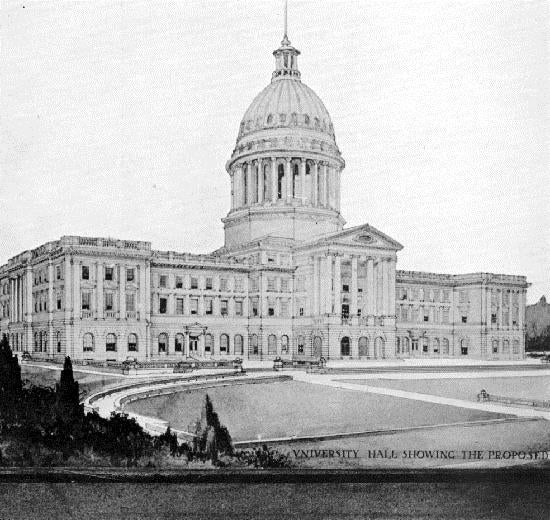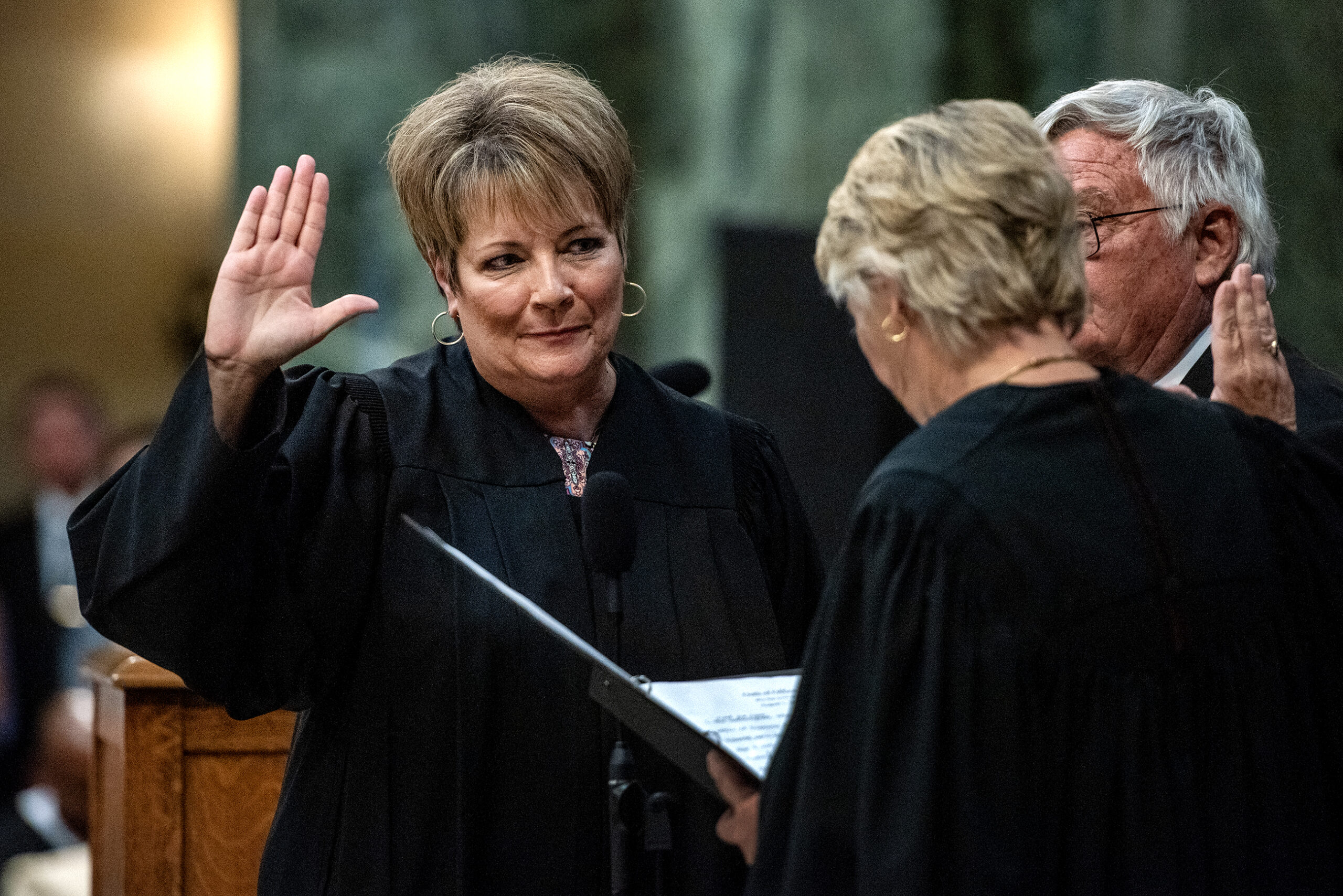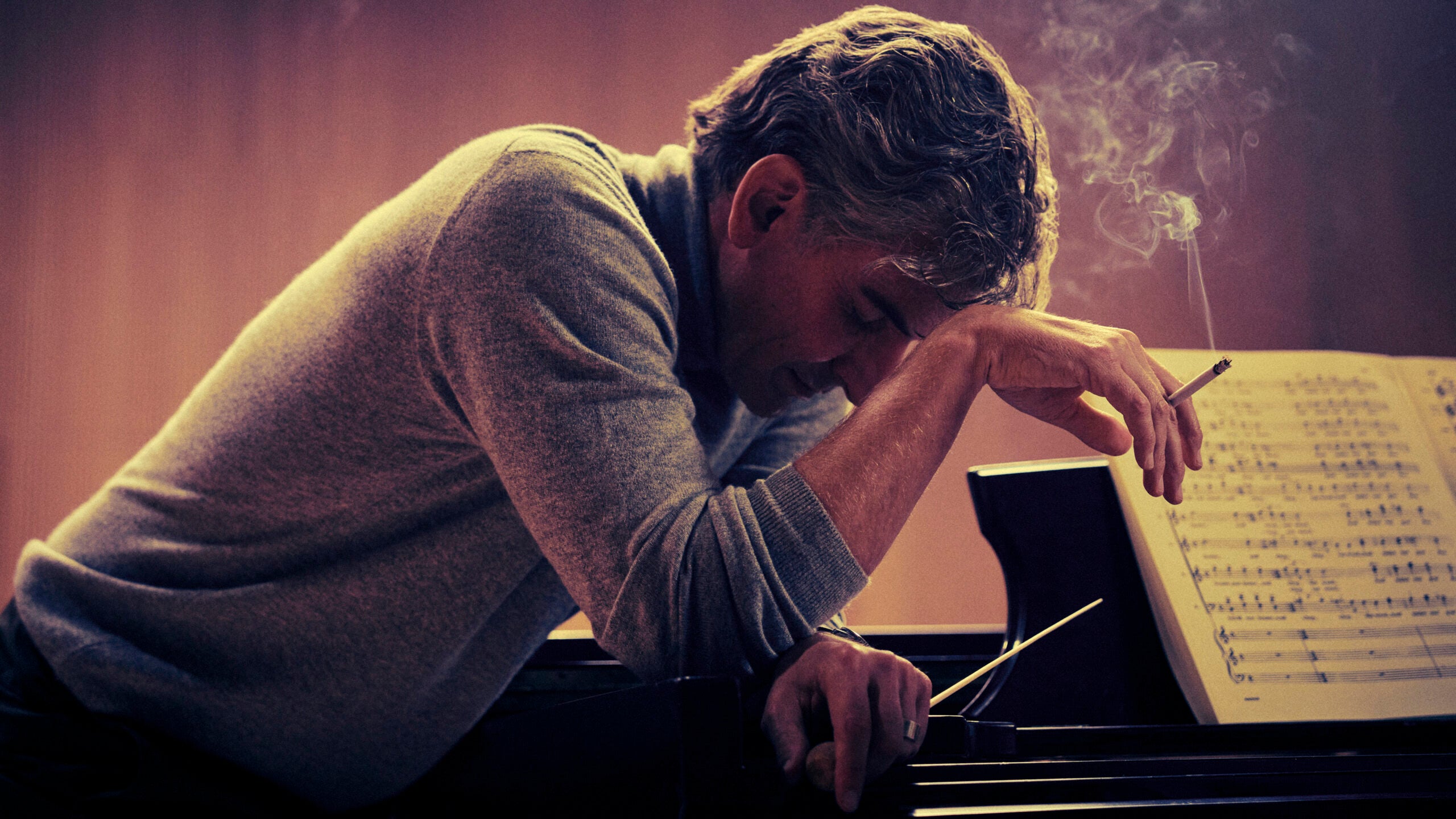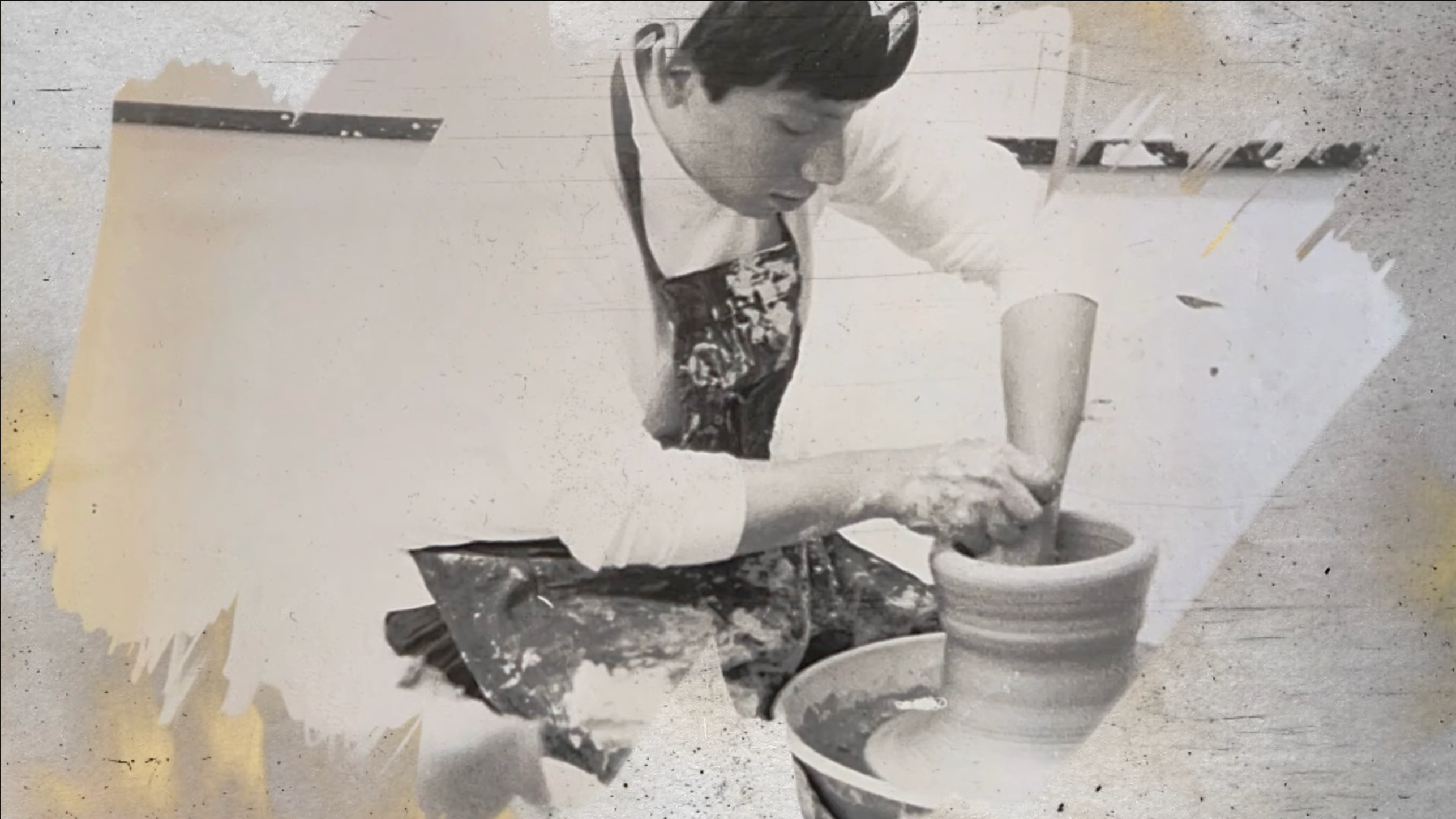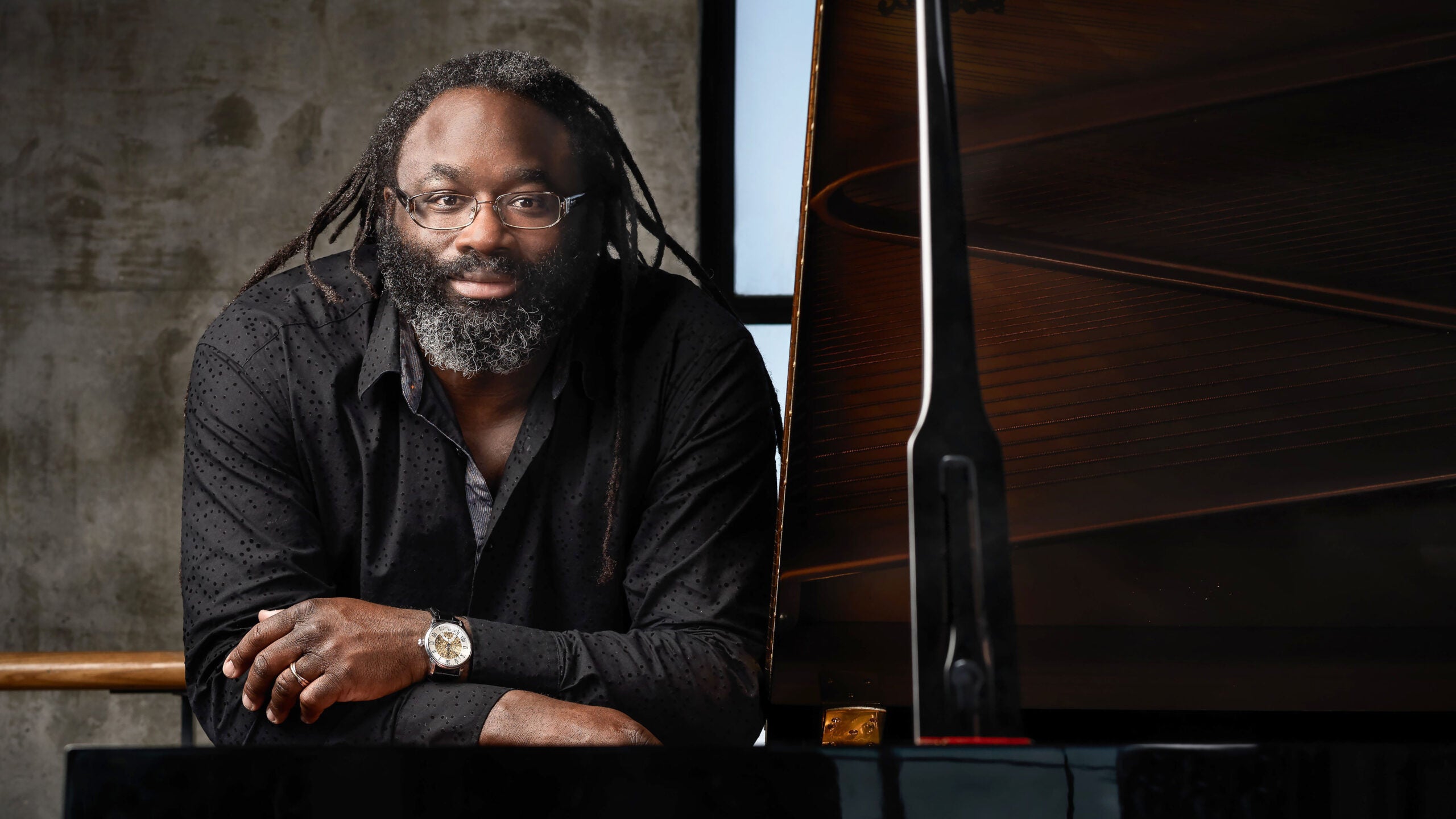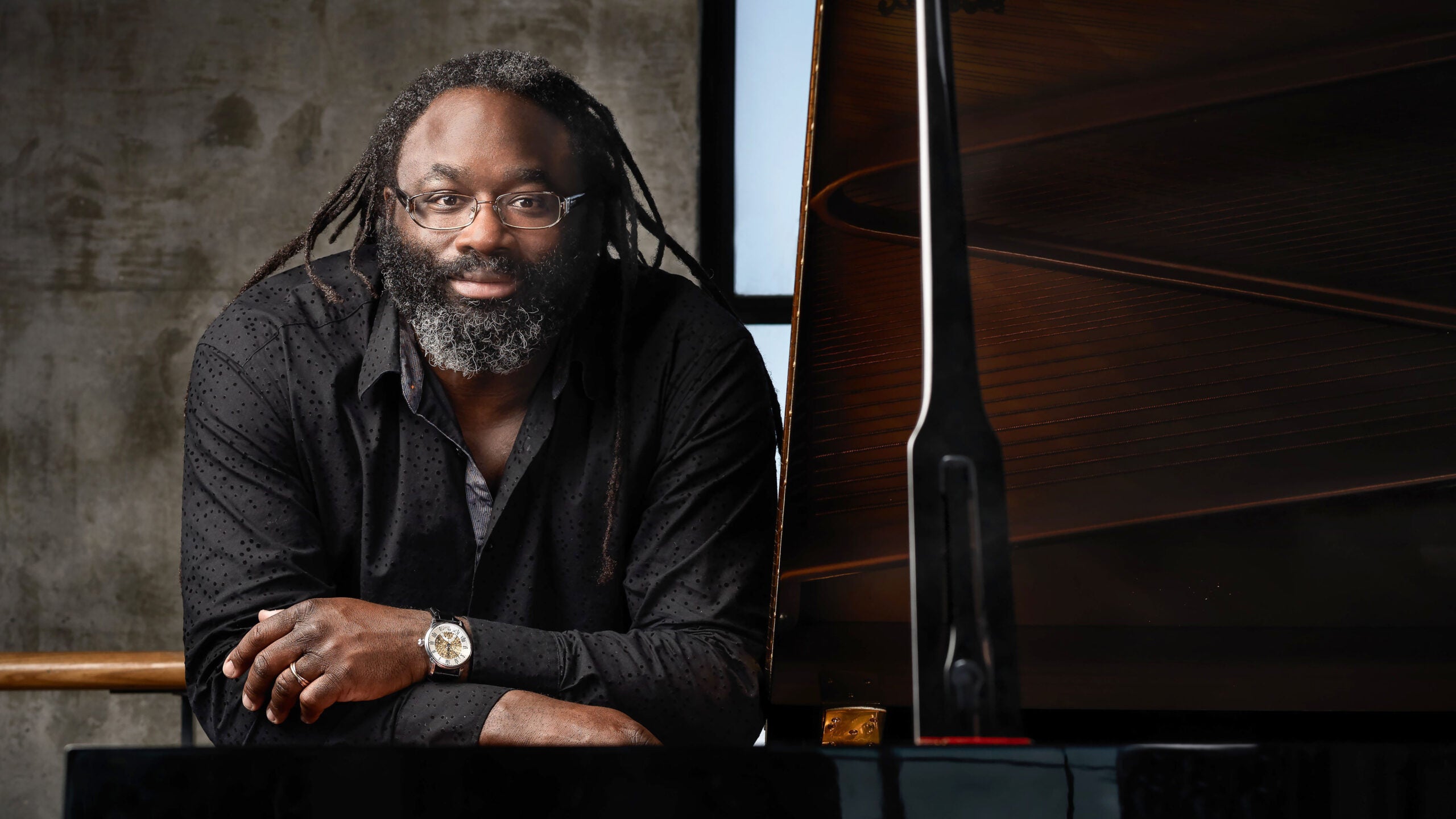Eugene Luening had come through some hard times, and in 1908 he accepted a one-year appointment as director of the Music Department at the University of Wisconsin in Madison. He soon found that he would have to give up some of his freedom, but he never gave up his sense of humor.
When his young sons asked Luening what he would be doing in his new position, he replied that he would recruit an orchestra of eighty-five and a chorus of 300 from the university students to produce Mendelssohn’s A Midsummer Night’s Dream. “We’ll do it on the lake,” he continued, “the soloists in canoes, the chorus on rafts. The orchestra will be on a barge.”
University President Charles Van Hise did not find Eugene Luening so amusing. In a budget request Luening asked for $5,000 to finance top-notch concerts with brilliant soloists, a large chorus and a big orchestra, and promised not to embezzle any of the money. Most of the requests were turned down. Luening’s performance of Haydn’s Creation was accompanied not by an orchestra, but by a pianist.
Stay informed on the latest news
Sign up for WPR’s email newsletter.
When Van Hise insisted that Luening teach counterpoint, Luening replied that the students weren’t ready for it, but Van Hise insisted. “Harvard offers counterpoint,” he said, “Yale offers counterpoint, the University of Wisconsin must offer counterpoint.” So Luening obliged, but the highest grade he gave was a 48. When Van Hise called him to task, Luening replied, “I was being generous. Bach gets one hundred. I myself don’t get more than a 75.”
Eugene Luening was replaced with a PhD from Harvard and offered tenure. By then, though, he had other ideas. He moved his family to Germany and became a vocal coach. His son Otto went on to become an independent–and durable–composer and lived from 1900 to 1996 and told of his father’s struggles in his 1980 autobiography.
Wisconsin Public Radio, © Copyright 2024, Board of Regents of the University of Wisconsin System and Wisconsin Educational Communications Board.

